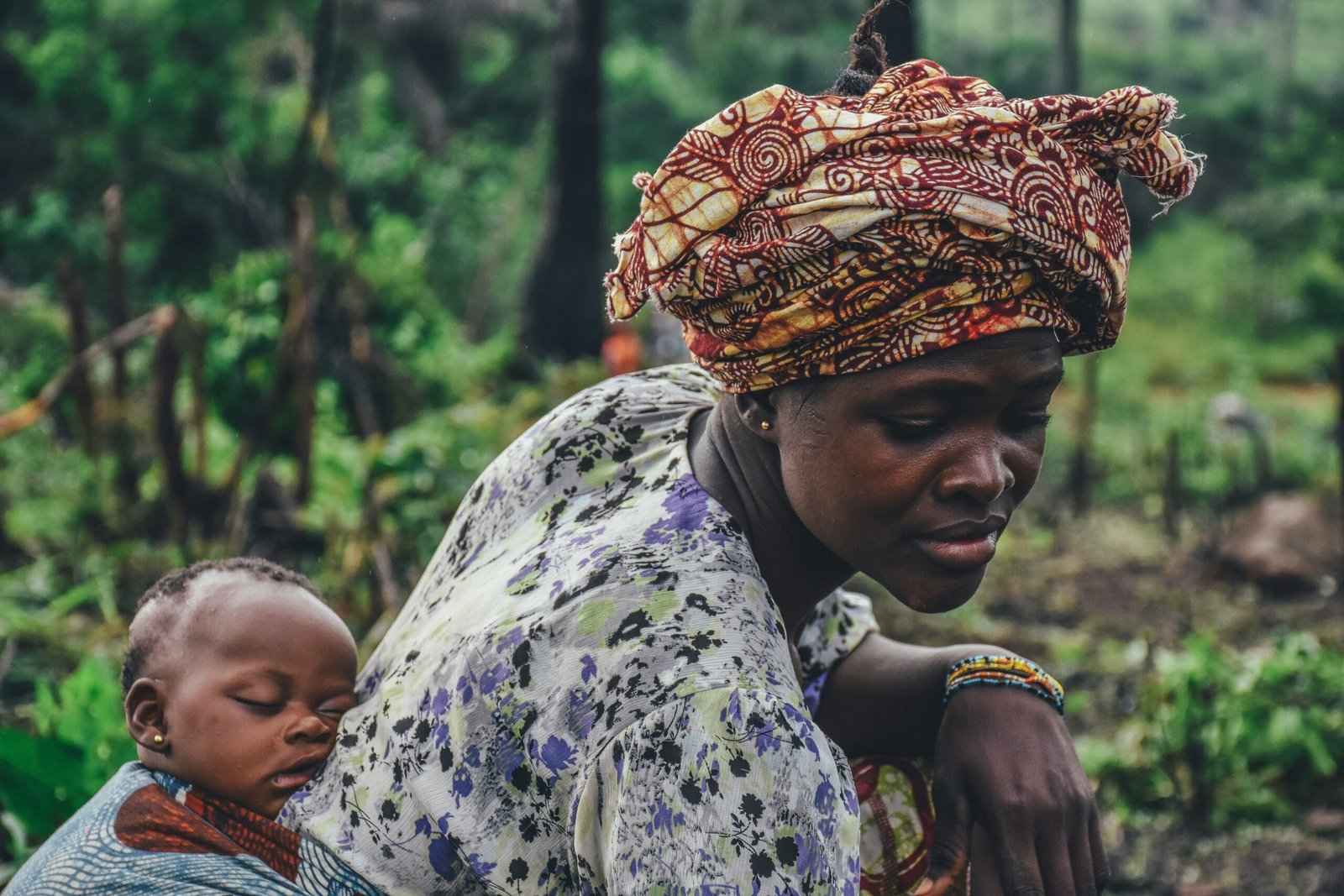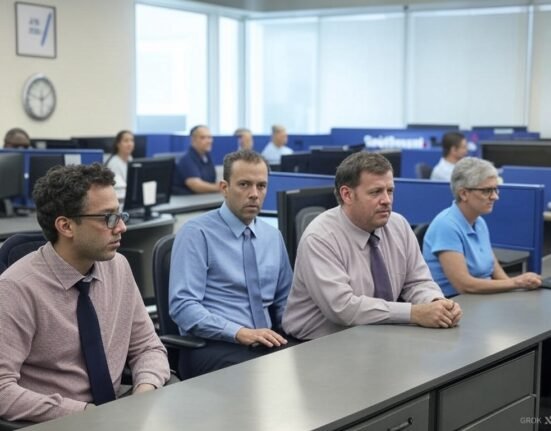The phenomenon of African migration to Europe has garnered significant attention in recent years, as countless individuals embark on perilous journeys driven by a blend of hope and desperation. Central to this migration is the search for better economic opportunities, safety, and the aspiration for a brighter future. Factors such as political instability, armed conflict, and economic deprivation in various African nations compel many to seek refuge or a new life abroad, with Europe often perceived as a land of promise.
However, this migration is fraught with challenges. The journey itself is perilous, with many attempting to cross treacherous sea routes or navigating through hostile territories. Reports of capsized boats and tragic loss of life are stark reminders of the dangers that migrant individuals face. Additionally, those who survive the journey experience a multitude of obstacles upon arrival in Europe, ranging from legal challenges to social integration issues and discrimination. Unfortunately, the very hope that drives these individuals often becomes overshadowed by the harsh realities encountered in their new environments.
Moreover, the complexity of African migration extends beyond mere economics; it encompasses deep-seated social and cultural dimensions that further complicate the integration process. Despite the contributions made by migrants to the economies and societies of European countries, they often grapple with perceptions of them as outsiders. This dual narrative of opportunity and hardship provides a critical lens through which to explore the plight of African migrants, underscoring their resilience as they navigate systemic barriers and seek to establish their identities in foreign lands.
Thus, the stories of African migrants serve as a poignant reminder of the multifaceted nature of migration, wherein aspirations collide with reality, revealing both their indomitable spirit and the formidable challenges they continue to confront.
Push Factors: Driving Migration from African Nations
The migration of individuals from African nations to Europe is influenced by a myriad of push factors that compel them to seek a better life elsewhere. One of the most significant reasons is political instability. Many African countries have experienced prolonged periods of authoritarian rule, civil conflicts, and governmental repression. These conditions create an environment fraught with fear, leading citizens to feel unsafe and powerless. As a result, they often make the difficult decision to leave their homeland in search of a more stable and democratic society.
Economic hardship is another primary driver of migration from Africa. A considerable number of individuals are confronted with the stark realities of high unemployment rates, low wages, and insufficient economic opportunities. In numerous African nations, the lack of infrastructure and investment significantly hampers economic growth, which, in turn, affects the population’s standard of living. Limited access to education and resources further exacerbates the situation, pushing individuals to leave in hopes of finding better job prospects and improved quality of life in Europe.
Additionally, armed conflict remains a critical push factor for many African migrants. Countries such as South Sudan, Somalia, and the Democratic Republic of Congo have faced devastating wars and internal strife, displacing millions. The impacts of such conflicts often extend beyond immediate danger to encompass food insecurity, loss of livelihoods, and social instability, driving people to escape these dire circumstances. Environmental challenges, such as drought, desertification, and climate change, also significantly contribute to displacement. These factors degrade agricultural land, resulting in diminished food supplies and forcing communities to abandon their homes in search of survival.
In light of these myriad challenges, it is evident that the decision to migrate is often a desperate choice made in the face of overwhelming adversities. Individuals seeking a brighter future navigate complex situations that compel them to risk everything, including their lives, in pursuit of safety and opportunity.
The Treacherous Journey: Crossing Borders and Seas
The journey undertaken by many African migrants in their quest for a better life in Europe is fraught with danger and uncertainty. Migrants from regions such as East, West, and North Africa often seek to escape socio-economic challenges, conflict, and lack of opportunities. Their paths are varied, but they frequently share common perilous routes that expose them to significant risks, including human trafficking and smuggling.
For many, the first step involves traversing land borders, where migrants face not only the physical challenges of dangerous terrains but also the threat of armed groups and corrupt officials. The journey to reach the Mediterranean coast can be long and arduous, often involving multiple countries and numerous obstacles. Migrants frequently rely on smugglers who overcharge for transportation and may subject them to exploitation and abuse. Reports have emerged of individuals being abandoned or held captive by traffickers. Personal accounts reveal harrowing experiences, as individuals navigate through hidden routes to avoid detection by national authorities while enduring desperate conditions.
The crossing of the Mediterranean Sea is perhaps the most treacherous stage of the journey. Many opt for overcrowded and inadequately equipped vessels, risking capsizing en route to Europe. A myriad of stories illustrates the peril faced by these migrants; some have survived harrowing nights at sea, while countless others have tragically lost their lives. Rescue operations, though present, often fall short as the number of individuals attempting to cross continues to rise. The sheer desperation of those embarking on this journey highlights human resilience and the extent to which individuals are willing to go to seek safety and opportunity.
As the statistics surrounding these journeys become more staggering, it is vital to recognize the human stories behind the numbers. These narratives remind us of the urgent social and political issues that drive migration while emphasizing the need for effective policies that prioritize the safety and rights of those in search of a better future.
Life in Limbo: Conditions in Refugee Camps
Upon arriving in Europe, many African migrants find themselves relegated to overcrowded refugee camps, where they confront a dire and precarious existence. These camps, often characterized by inadequate shelter and insufficient access to basic necessities, present significant challenges to the daily lives of their inhabitants. Many migrants quickly discover that the promise of safety and opportunity in Europe is frequently overshadowed by harsh living conditions and overwhelming uncertainty.
One of the foremost issues faced by individuals in these camps is a chronic lack of basic necessities such as food, clean water, and sanitation facilities. Despite international commitments to uphold humanitarian standards, the reality of life in these shelters often includes insufficient meal provisions and unsanitary conditions, which can lead to both physical and mental health crises. The limited availability of resources exacerbates the struggles of migrants who are already vulnerable after enduring perilous journeys across various terrains to reach Europe.
Moreover, access to healthcare remains a prominent concern. Many refugees contend with the lack of medical services, making it difficult to address both short-term health issues and long-term conditions. Psychological support is often non-existent, leaving individuals to grapple with trauma from their past experiences alone. This neglect fosters a sense of hopelessness and despair, further complicating their adjustment to life in a new country.
The treatment of migrants by authorities and society can vary greatly, impacting their integration and wellbeing. Many face discrimination and stigmatization, which can hinder their ability to navigate legal processes or seek assistance. The tension between refugees and local communities often results in social divisions, complicating the already challenging process of rebuilding their lives. As these individuals struggle with feelings of isolation and helplessness, the conditions in refugee camps serve as a stark reminder of the broader systemic issues that contribute to the plight of African migrants in Europe.
Cultural Challenges: Integration and Acceptance
The journey of African migrants to Europe is often fraught with numerous challenges, particularly in the realm of cultural integration and acceptance. Upon arrival in their new host countries, migrants frequently encounter skepticism and prejudice from local populations. This distrust can manifest in various forms, including social discrimination, which may limit access to essential services and employment opportunities. Such barriers can contribute to a sense of isolation and alienation, undermining the migrants’ efforts to build a new life in a foreign land.
Language barriers often exacerbate these cultural challenges. The inability to communicate effectively can hinder day-to-day interactions, making it difficult for migrants to engage with their local communities, find work, or seek assistance. Language proficiency not only facilitates better integration but also enhances the migrant’s ability to navigate bureaucratic systems and access resources critical for their survival. Those who are unable to learn the local language may find themselves marginalized, compounding feelings of disconnection and frustration.
Despite these obstacles, numerous community initiatives and organizations are dedicated to aiding the integration of African migrants. These groups frequently offer language classes, cultural orientation programs, and social events designed to foster intercultural dialogue. Positive relationships between migrants and local residents can lead to mutual understanding and acceptance, which are vital for the overall well-being of both parties. Efforts such as mentorship programs and community networking can play a pivotal role in bridging cultural divides, enabling African migrants to gain a foothold in their new environment.
In summary, while the integration process for African migrants in Europe is characterized by significant cultural challenges, ongoing community efforts to promote acceptance and understanding are vital in fostering a more inclusive society. Overcoming prejudice and language barriers requires collaborative action, but the potential for enriched cultural exchange and coexistence remains.
Navigating Legal Systems: Asylum and Immigration Processes
The journey of African migrants to Europe is often fraught with daunting legal challenges. Upon arrival, many seek asylum, a complex process that can differ significantly from one country to another. The asylum-seeking procedure typically involves submitting an application, which is assessed by immigration authorities. However, navigating these processes can be overwhelming due to varying national regulations and frameworks governing asylum in European nations.
In general, asylum seekers are entitled to certain rights, such as protection against refoulement—being returned to a country where they may face persecution. Nonetheless, these legal safeguards can be difficult to enforce, leaving many migrants unsure of their status. Countries like Germany and Sweden are known for comparatively progressive asylum policies, providing more supportive environments for migrants. In contrast, nations like Hungary and Italy have adopted stricter measures, which can significantly impede the legal rights of those seeking refuge.
The complexities surrounding immigration laws contribute to the difficulties faced by African migrants. In some instances, applicants encounter lengthy wait times for their cases to be processed, risking indefinite detention in inadequate facilities during this period. Moreover, the lack of legal representation can hinder migrants’ understanding of their rights and available options. This often results in a situation where individuals must navigate a convoluted legal landscape without adequate guidance, making it challenging to succeed in their asylum claims.
Variation in policies across European countries also means that some migrants may have to move from one nation to another in search of a more favorable legal framework. Countries may impose differing criteria for asylum eligibility, and those who initially sought refuge in one nation may find themselves compelled to travel to another where they believe their chances of success at obtaining legal status might be higher.
Advocacy and Support: Organizations Making a Difference
In the complex landscape of migration, various non-governmental organizations (NGOs) and grassroots movements play a vital role in supporting African migrants in Europe. These organizations offer a range of essential services, including legal assistance, healthcare, shelter, and social integration programs, which are crucial for migrants striving to navigate their new environments while facing numerous challenges.
One prominent organization is the International Organization for Migration (IOM), which focuses on the well-being and humane management of migration. They provide critical support to African migrants by facilitating safe and legal pathways and offering resources for those who have experienced exploitation. Similarly, the Refugee Council advocates for the rights of individuals seeking asylum, providing essential support services, including advice and assistance in accessing public resources.
Grassroots movements also serve an essential function in addressing the needs of African migrants. Groups such as the African Diaspora Network (ADN) actively engage in community-building initiatives and empower migrants through educational programs and skill development. Their efforts not only help migrants assimilate but also foster a sense of belonging and community cohesion.
Success stories from these organizations emphasize the positive impact of advocacy and support. For example, many migrants have successfully accessed housing and employment opportunities via support networks established by these NGOs. Such initiatives not only aid individual migrants but also encourage systemic changes in policies that often impede their integration.
The importance of advocacy in this context cannot be overstated. By raising awareness about the specific struggles faced by African migrants in Europe, these organizations contribute to a broader dialogue on migration policies. As public sentiment evolves, so too does the potential for meaningful changes that can enhance the lives of migrants across Europe. Supporting these organizations is crucial, as they are at the forefront of creating a more equitable and inclusive society for all.
Media Representation: How Migrants are Portrayed
The portrayal of African migrants in media plays a critical role in shaping public perception, influencing policy, and affecting the lived experiences of the migrants themselves. Various forms of media, from news outlets to social media platforms, contribute to a broad spectrum of representations that oscillate between negative stereotypes and more humanized narratives. These portrayals shape not only how migrants are viewed by society but also how migrants view themselves within their new contexts.
On one hand, sensationalized news coverage often emphasizes the struggles and dangers faced by migrants, depicting them primarily as victims or as individuals introducing societal challenges. Such narratives can engender fear and hostility within host countries, reinforcing xenophobic attitudes. The framing of migrants as a threat to national security or economic stability frequently leads to the adoption of stringent immigration policies that disregard the humanitarian aspects of migration. Consequently, this negative representation can perpetuate a cycle of marginalization and discrimination, adversely affecting the social integration of African migrants.
Conversely, some media outlets strive to highlight the resilience and contributions of migrants to their new societies. Positive representations illuminate stories of success, community engagement, and cultural enrichment, enabling a more nuanced understanding of migration. These portrayals not only foster empathy and solidarity but also encourage public discourse around migration policies that are fair and equitable. By emphasizing responsible journalism, media can counteract stereotypes and offer a platform for African migrants to narrate their own stories, thus validating their experiences.
Ultimately, a balanced media representation is essential for fostering informed public discussions around migration issues. The impact of how African migrants are portrayed is profound, as it influences societal attitudes, policy decisions, and the psychological well-being of those who migrate. Responsible storytelling can bridge the gap between cultures and promote a more inclusive approach to migration in Europe.
Conclusion: A Call for Awareness and Action
The plight of African migrants in Europe raises critical questions about human rights, dignity, and the responsibility we all share as global citizens. As these individuals navigate treacherous journeys, risking their lives in search of safety and opportunity, it is imperative that we foster a deeper understanding of their experiences. This recognition should come not merely from a place of sympathy, but from a commitment to stand in solidarity with those facing profound challenges.
Awareness is the first step towards meaningful change. By educating ourselves and others about the systemic issues that drive migration—from economic disparity and political instability to climate change—we can begin to dismantle the misconceptions surrounding African migrants. Engaging in discussions within our communities can help shed light on the complexities of migration, encouraging a more empathetic view of those seeking refuge and a better life in Europe.
Moreover, supporting organizations that work directly with African migrants can be transformative. These organizations provide essential services, from legal aid to mental health support, helping migrants navigate the myriad obstacles they face. Contributing time, resources, or financial support can significantly bolster their efforts and enhance the quality of assistance provided to vulnerable populations.
Advocacy is another crucial avenue through which we can effect change. Encouraging policymakers to develop and implement fair immigration policies that respect the rights and dignity of migrants is essential. Speaking out against xenophobia and discrimination not only empowers migrants but can also foster a more inclusive society. Collectively, by raising our voices and taking definitive action, we can impact the lives of countless individuals striving for safety and opportunity. Let us not turn a blind eye to their struggles; instead, let us work together to create a more just and equitable world for all.














Leave feedback about this